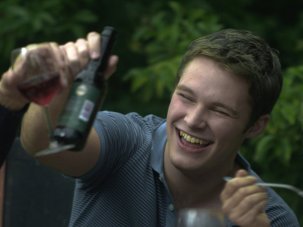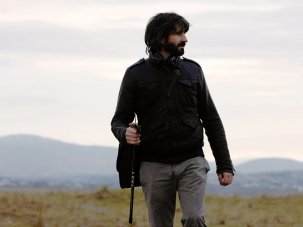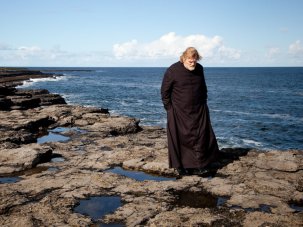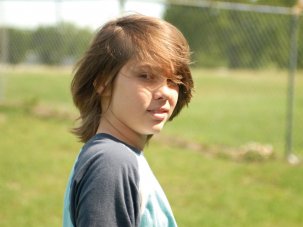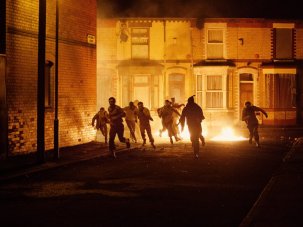from our May 2015 issue
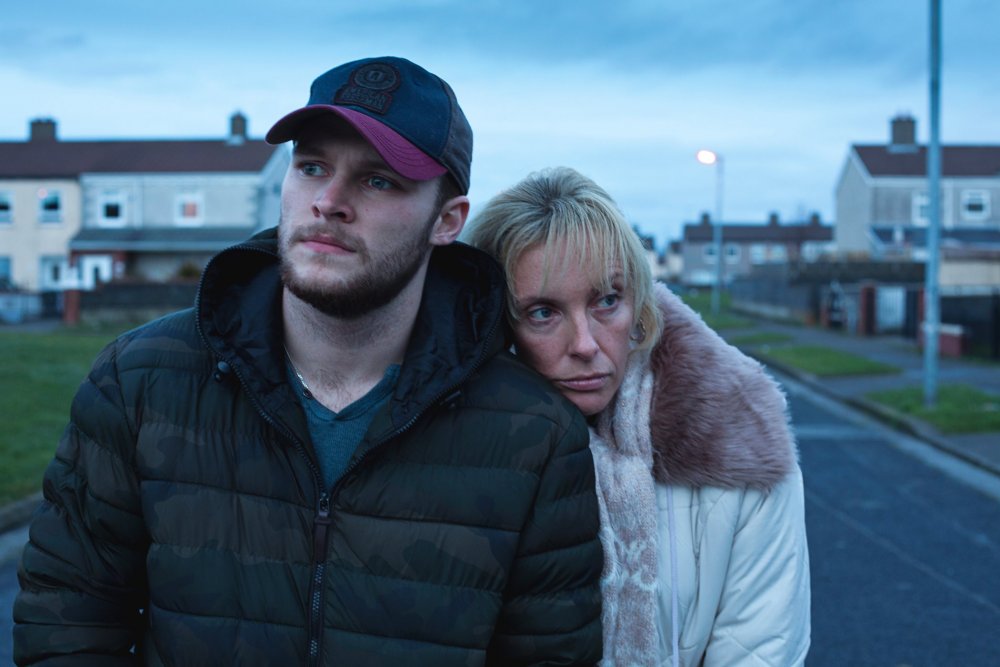
Glassland (2014)
Nearly every taxi driver has one – those little pine-tree air fresheners dangling from the rear-view mirror. Jack Reynor’s hard-pressed Dublin cabby takes it a bit further, though, hanging a small cameo of the Madonna and Child underneath his vehicle’s fake-evergreen odour eater.
Ireland/United Kingdom 2014
Certificate 15 92m 50s
Director Gerard Barrett
Cast
John Jack Reynor
Shane Will Poulter
Jim Michael Smiley
Jean Toni Collette
Kit Harry Nagle
In Colour
[2.35:1]
UK release date 17 April 2015
Distributor Element Pictures Distribution
glasslandfilm.ie
► Trailer
Writer-director Gerard Barrett tellingly points up this tiny glint of the Renaissance amid the quotidian grunge of the Irish capital’s insalubrious outskirts, a deft reminder of the timeless bond between mother and son. It’s not framed in close-up but seen in a mid-shot taking in the car’s dashboard, windscreen and the world beyond. As such, it’s almost as if the filmmaker is trusting the viewer to notice it – but there it is. Indeed, its decisive yet underplayed placement in the narrative – and the way this time-honoured image combines individual intimacy and universal resonance in a single gesture – exemplifies what’s so impressive about the 27-year-old Irishman’s sophomore feature.
Reynor, previously seen as the errant, privileged schoolboy in Lenny Abrahamson’s What Richard Did (2012), here takes it down a few socioeconomic notches as John, who drives his beaten-up cab all the hours his dodgy boss will give him, his mother on his mind throughout. What state will she be in when he gets back to their council house? Collapsed in the doorway? Unconscious in a pool of her own vomit? Maybe not even there at all? There’s an element of surprise when you’re son and carer to an alcoholic like Toni Collette’s Jean, but the frustration and sadness of seeing your mother slowly drinking herself towards oblivion become a near-unbearable constant.
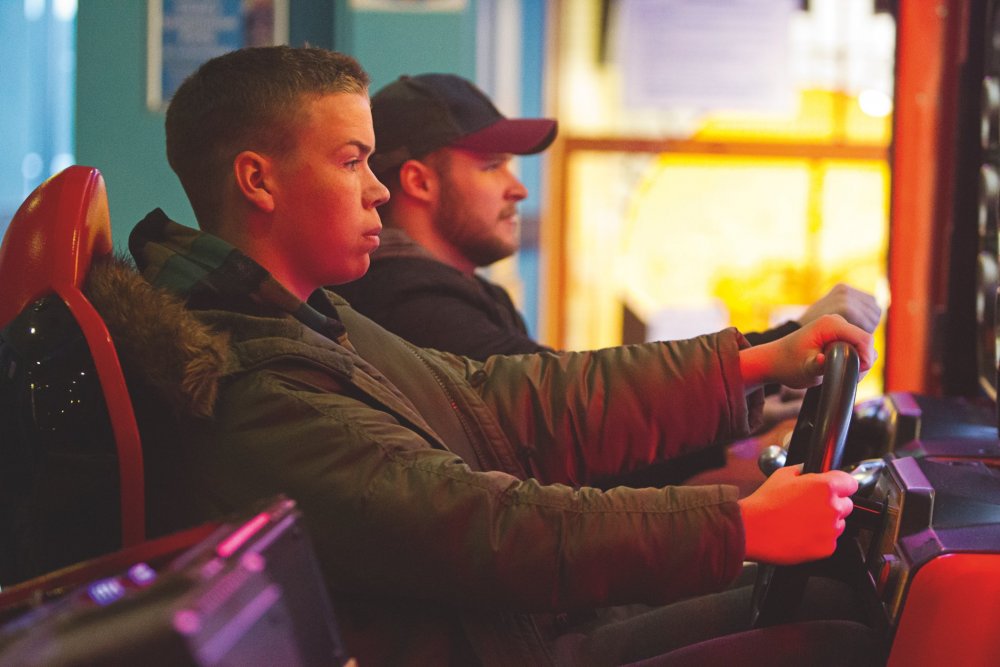
Glassland (2014)
After the latest hospitalisation, the doctor tells John that she must quit or die, the threat of mortality spring-loading the narrative thereafter – we wonder how far down the road to recovery mother and son will travel – but also allowing the film to contemplate the fundamental issues behind her seemingly self-destructive trajectory. On the surface, Glassland adeptly keeps us invested in the day-to-day challenges of alcoholism and its collateral damage; beneath this, however, the film’s real aim is to uncover deep disjunctures between the ego-driven directives of the private self and the communal imperatives shaping our social identity – a fracturing that, as Barrett’s carefully calibrated storytelling lays out, affects both mother and son.
From the very opening scenes, the cold blue-grey of the council-house walls and the watery light seeping in through net curtains establish a sort of insidious lonesomeness, underscored by the astute blocking of the performers. Reynor’s propensity to keep his baseball cap pulled down as he stares into the middle-distance not only establishes his apartness but prompts us to wonder just what it is he’s looking so thoughtful about. The spare and elliptical exposition establishing that he works for a cab company with a sideline in moving illicit persons and substances further draws us in.
And then, just as the terrifying extent of Jean’s problem emerges in a drunken fit positively raging with intensity, Barrett adds to the complexity by revealing that she has a Down’s Syndrome son named Kit (Harry Nagle), who is living in care but whom she has absolutely no desire to see. Equal to the guttural demands of the local accent and thoroughly convincing in the skew-whiff physicality of the serious pisshead, Collette is also devastating in a seven-minute monologue in which she maintains, with a bracing absence of sentimentality, that Kit’s birth scared off her husband (also John’s father), destroying her happiness and consigning her to a lonely life with only the bottle for company. Never mind what society – or the listening John, or the audience – thinks, her inner demon is telling her to have another drink and damn the lot of them.
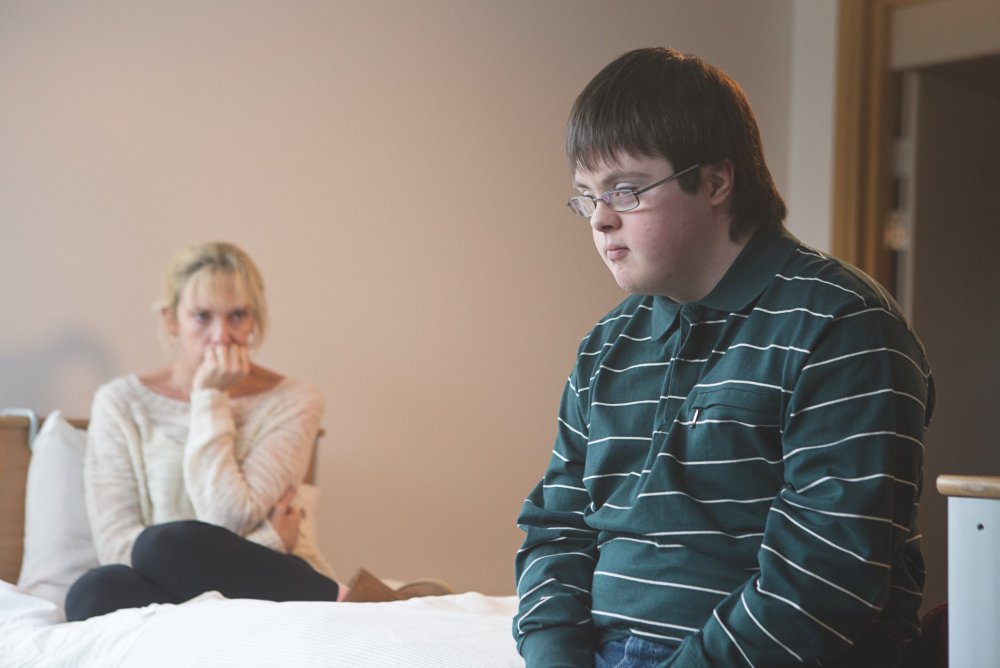
Glassland (2014)
The conventional filmic approach would be to follow this wayward mother through the counselling process, with all its scope for shouty set pieces, towards a potential redemption and reaffirmation of her maternal instincts, but it’s a mark of Barrett’s confidence in his distinctive take on the material that this isn’t his prime focus. Instead, the film concentrates on where Jean’s travails leave John, damaged child of a damaged parent. Outwardly, he seems well adjusted – a hard worker, a resolute carer, a loyal friend to his best mate (Will Poulter’s gobby Shane, bringing some welcome humour). The more we spend quiet, solitary time with him, however, the more we get a cumulative sense of someone uneasy in his own skin.
There’s a sort of congruence here with Barrett’s modest but potent debut Pilgrim Hill (2013), which traced the anguish of a bachelor farmer whose longing for a better life was stymied by forces beyond his control, leaving him, in his own words, “just existing”. In this instance, the clues are carefully laid out for us: how John can’t look when his mate is fussed over by his lovely mum; how the two lads’ time together playing videogames or in the amusement arcade suggests a lingering boyhood; how his searing anger at Jean explodes because he wants back the mother he used to know rather than this animal embarrassment.
Here’s someone longing to return to the cosseting confines of childhood, perhaps even to an idealised childhood he may never actually have experienced given his booze-afflicted circumstances. Hence Barrett tantalisingly posits the idea that this yearning, unfulfilled inner self might be the determining factor behind the model son/friend/worker the world sees. Will goodness provide its own reward for this saintly character? That’s an especially pertinent question given the sacrifices Reynor’s protagonist will eventually make to provide the best hope for his mother’s wellbeing.
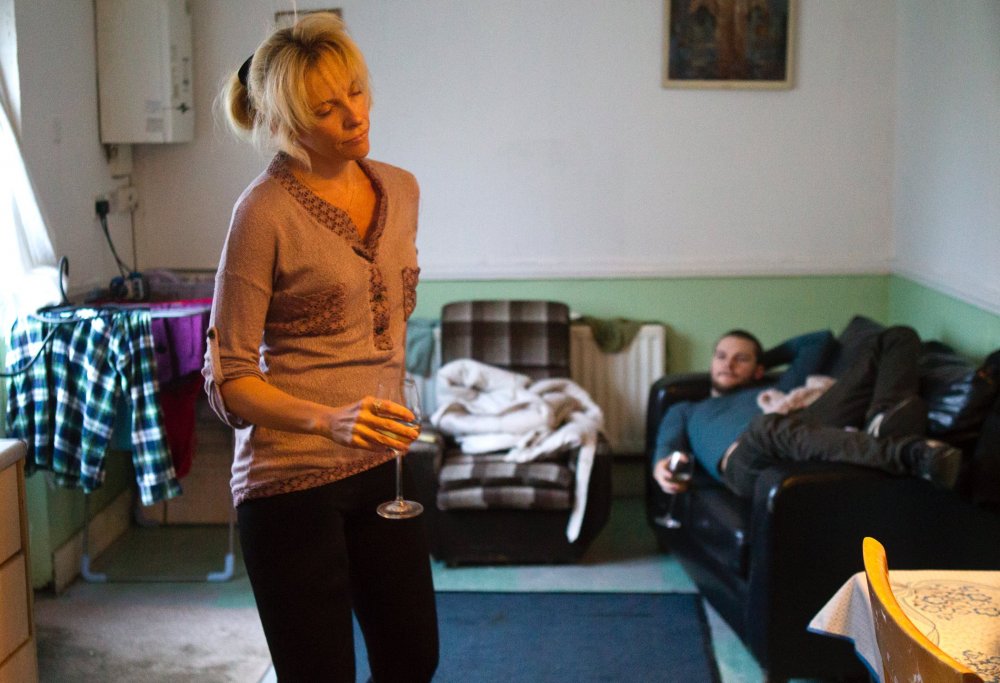
Glassland (2014)
When that crunch moment eventually comes, Reynor, whose every gesture in the film has been directed with striking precision, casts his eyes significantly skyward, which has us wondering again about the spiritual significance of that Madonna and Child dangling off his rear-view mirror. There’s no other religious iconography in the film, after all. Instead the camera is often looking out through windows – of cars, the council house, the clinic – the title Glassland perhaps referring to the divide between interior and exterior realms in lives, where the Church no longer helps us to make sense of our place in things.
Listen to this though: “A silent friend, a friend who would never hurt me, who always made things better if only for a little while.” That’s Jean talking about the booze in terms you might reserve for spiritual solace in an uncaring world. Moreover, the film’s haunting final frame, in which John stands poised in a doorway, leaves us with a resonating ambiguity. Have his apparently selfless acts been a stealthy pathway towards self-destruction? Or is his seeming goodness a way of providing a secular, very personal balm against a despairing realisation that he can’t repair the past and reclaim his childhood?
Bruno Dumont got there first with the title La Vie de Jésus (1997) but it could fit just as well here, and Barrett’s film certainly has welcome echoes of early Dumont. True, the extraordinary performances have a bit more naturalistic lift to them, yet the weak northern light, the elliptical storytelling and, most of all, the stillness of the frame somehow allow a seemingly everyday story to radiate and reveal an inner life that’s captivating and immersive in the way it combines expressive acuity with humane insight.
For a second feature this is the real deal, the best Irish film in years, and proof that for all the expanded horizons of its recent international productions with Messrs Skolimowski, Sorrentino and Lanthimos, Dublin’s Element Pictures continues to foster local talent. In this case, a farmer’s son from Kerry with (fingers crossed) a big future ahead of him.
-
Sight & Sound: the May 2015 issue
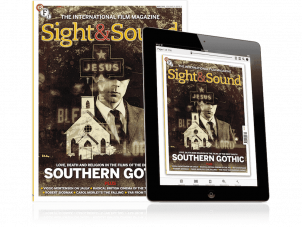
Born on the bayou – the gothic cinema of the American Deep South, plus The Falling, A Pigeon Sat on a Branch Reflecting on Existence, Jauja, Force...
-
The Digital Edition and Archive quick link
Log in here to your digital edition and archive subscription, take a look at the packages on offer and buy a subscription.




